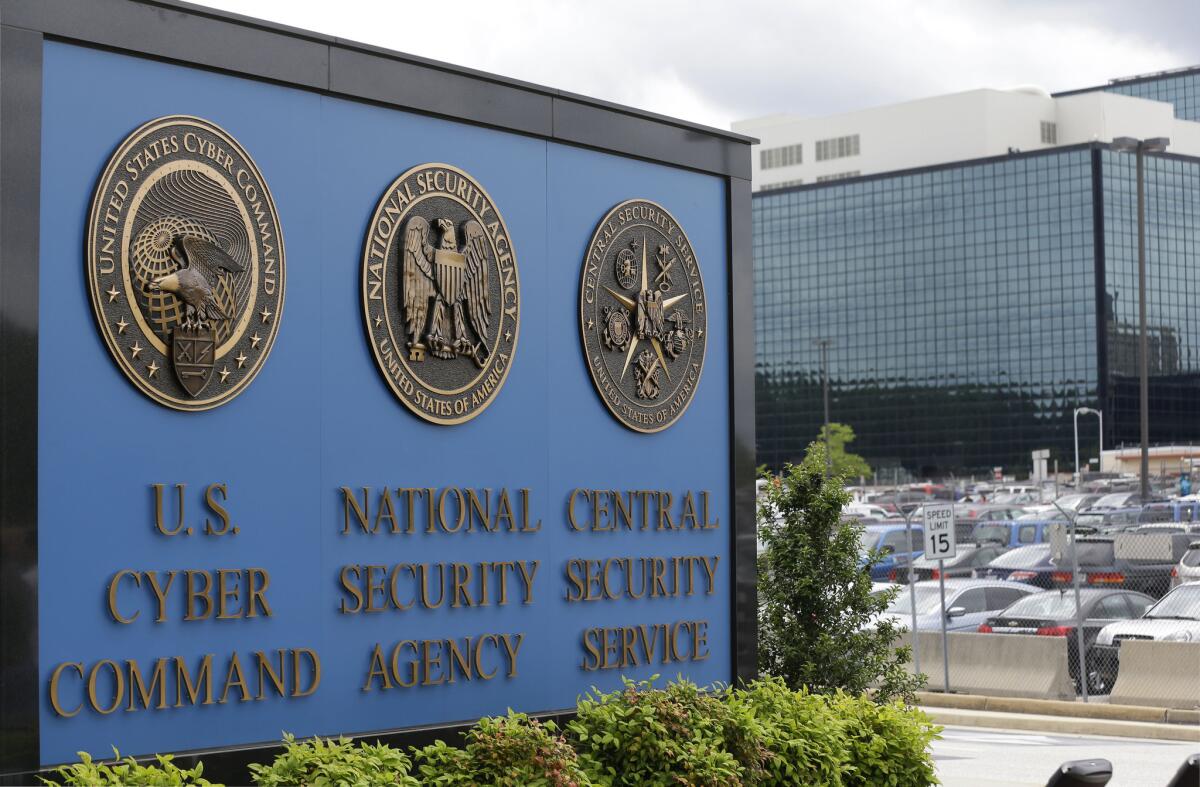A 21st century right to privacy

After it was revealed that the government was “bulk collecting” Americans’ telephone records, President Obama tried to be reassuring. “Nobody is listening to your telephone calls,” he said. “They are not looking at people’s names, and they’re not looking at content. But by sifting through this so-called metadata, they may identify potential leads with respect to folks who might engage in terrorism.”
But a lawsuit filed by the American Civil Liberties Union challenging the phone records program argues persuasively that this supposedly innocuous metadata can disclose as much about the private activities of phone subscribers as would eavesdropping on the contents of conversations. That is worrisome even if such information is only rarely accessed.
As the ACLU’s brief puts it: “Each time a resident of the United States makes a phone call, the [National Security Agency] records whom she called, when the call was placed and how long the conversation lasted. The NSA keeps track of when she called the doctor, and which doctor she called; which family members she called, and which she didn’t; which pastor she called, and for how long she spoke to him. It keeps track of whether, how often and precisely when she called the abortion clinic, the support group for alcoholics, the psychiatrist, the ex-girlfriend, the criminal defense lawyer, the fortune teller, the suicide hot-line, the child services agency and the shelter for victims of domestic violence.”
The government collects this information under a broad reading of the Patriot Act, but without having to demonstrate to a court that there is probable cause that any individual subscriber is involved in terrorism. That’s possible in part because the Supreme Court has held that individuals have no reasonable expectation of privacy for information they turn over to “third parties.” In 1979, for example, the court ruled that police didn’t need a warrant to install a device known as a “pen register” to record information about calls placed by a robbery suspect. Writing for the court, Justice Harry Blackmun blithely said that “we doubt that people in general entertain any actual expectation of privacy in the numbers they dial.”
In its lawsuit, the ACLU argues that the NSA’s collection of metadata is much more objectionable than the warrantless monitoring of phone calls upheld by the court in 1979. That’s true. As Justice Sonia Sotomayor has written, the court’s approach “is ill-suited to the digital age, in which people reveal a great deal of information about themselves to third parties in the course of carrying out mundane tasks.” Sotomayor added: “I for one doubt that people would accept without complaint the warrantless disclosure to the government of a list of every website they had visited in the last week or month or year.”
A decision by the Supreme Court extending 4th Amendment protections to telephone and other electronic records isn’t the only way to rein in the indiscriminate collection of metadata by the government. Congress also could outlaw the practice, as the House came close to doing in July. Eventually, however, the court will have to decide whether a definition of a “reasonable expectation of privacy” formulated in 1979 makes sense in the 21st century. The answer is no.
More to Read
A cure for the common opinion
Get thought-provoking perspectives with our weekly newsletter.
You may occasionally receive promotional content from the Los Angeles Times.










